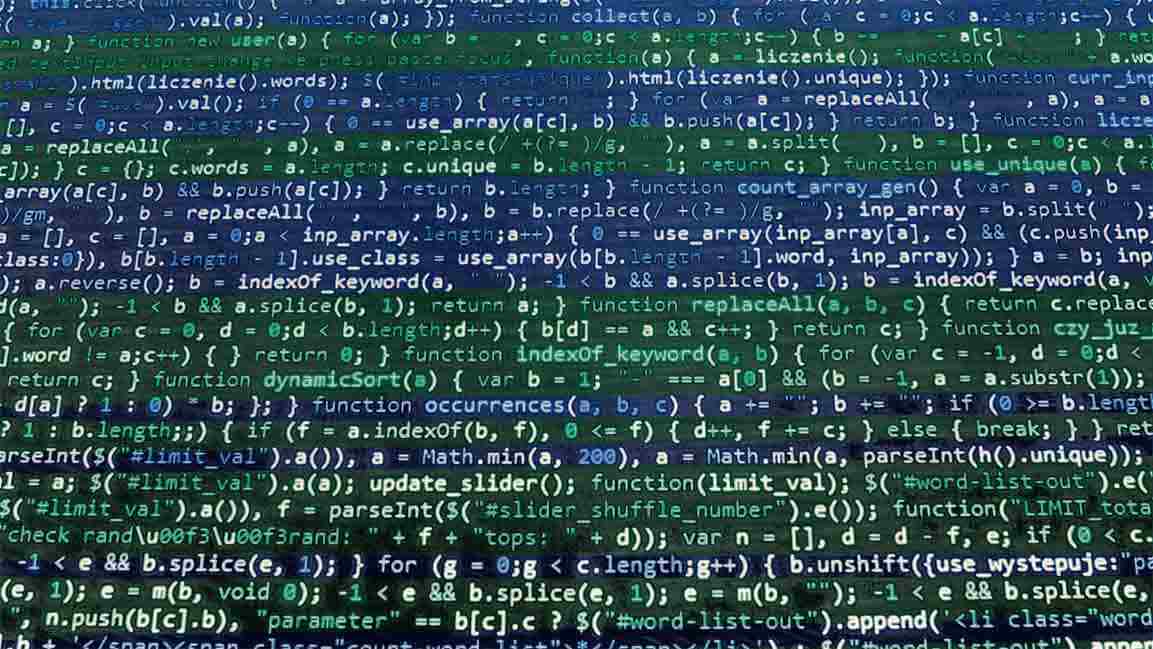- | 9:00 am
Can green coding impact energy consumption in the Middle East?
The concept of green coding might be in its nascent stage, but the environmental impact could be tremendous

In the gigantic digital landscape, where billions of users interact every second, every online action leaves a virtual footprint.
As of April this year, there were 5.18 billion internet users worldwide, accounting for 64.6% of the global population. And with an estimated 20 trillion words projected to be stored in the pits of software, the sheer volume of digital data has raised a concern – the hidden environmental impact of technology.
A lesser-known term, “green coding,” is emerging to mitigate the environmental impact caused by software development. But how does it achieve this objective? Organizations can substantially reduce their carbon footprint by optimizing code for energy efficiency and promoting sustainable practices.
But, despite the urgent need to tackle environmental concerns, the concept of green coding is still waiting to be harnessed.
WHERE ARE WE TODAY?
“Every action performed on a computer has a carbon footprint, however small it may be,” says Monaem Ben Lellahom, Partner & Group CEO at Sustainable Square. He adds, “Each application uses a set of energy-intensive components: the computer processor, the internet connection, the physical servers, the cloud, etc. The responsibility of finding greener ways of working belongs to everyone in the organization, including the designers and developers.”
In the Middle East, green coding, as a domain, is at an early stage of maturity, driven by the increasing adoption of AI and sustainability goals in various industries.
Adnan Abu-Dayya, CEO of Qatar Mobility Innovations Center, believes AI directly impacts the emergence of green coding on two fronts. “On one hand, the growing adoption of AI and large-scale language models leads to increased computing resources and data generation, resulting in higher carbon emissions. This underscores the importance of green coding. On the other hand, AI can play a pivotal role in developing and implementing green coding principles and technologies.”
AI, in particular, is shaping the future of various industries. Tadas Jurelevicius, Director of Product, at Kitopi, believes AI is already exerting a considerable influence on the future of diverse industries, and its impact is projected to intensify further in the coming years.
He says, “In the Middle East, where environmental awareness is on the rise, a promising prospect exists for the acceptance of green coding practices within the food delivery industry. The endless opportunities include dynamic resource allocation, load balancing, scaling policies, spot instance utilization, serverless computing, and off-peak resource management. These practices can be pivotal in fostering green coding practices in the food delivery sector.”
IS IT HELPING THE ENVIRONMENT?
Green coding can help reduce carbon footprint and advance an organization’s sustainability goals. For Lellahom, green coding assumes a central role within the sustainability consulting industry, enabling businesses to develop more efficient systems that result in cost and energy savings. He emphasizes, “Through the adoption of green coding strategies and approaches, sustainability consultants can assist businesses in creating programs that minimize electricity consumption and lessen their overall environmental impact.”
But for Dayya, green coding primarily involves efficiently designing and implementing software while smartly managing computing resources to reduce its negative environmental impact by lowering power requirements. “Green coding directly contributes to achieving sustainability goals, especially as most industries are becoming software-centric, utilizing data, AI, automation, and new applications to enhance efficiency.”
THE ROLE OF TECH
Lellahom believes programmers can be involved with sustainable technology movements and contribute to different open-source projects.
Selecting the appropriate programming language is the initial and crucial step for programmers, as it directly affects application performance, hosting environment, and hardware compatibility. “By making thoughtful language choices, programmers can build software that endures hardware updates, decreasing electronic components and device waste.”
In pursuit of sustainable practices, they should prioritize performance optimization, gauge energy consumption, and leverage automatic debugging to create more efficient and eco-friendly software solutions.
Technology plays a vital role in measuring and reducing carbon emissions by enhancing supply chain transparency and collaboration and improving production energy efficiency, adds Jurelevicius.
IN THE END…
There remain certain entry barriers in green coding, with cost being the primary one. The process demands significant investment in time, research, change management, and training, among other factors. Additionally, Lellahom believes hosting the developed applications in a green cloud data center can be relatively expensive.
As the amount of data increases substantially and computing resources grow to accommodate the processing and support of various applications and services, inefficient code and traditional computing resource management techniques can significantly adversely impact the environment.
“Adopting green coding practices at all levels, including the design, implementation, and DevOps phases, is becoming a necessity rather than a mere preference,” says Dayya.
In a world driven by data and technology, the allure of an end-to-end green coding strategy lies in its promise of reduced power consumption and an uncanny ability to unveil hidden code inefficiencies.








































